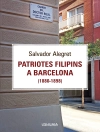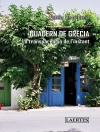In ‘A Tour in Ireland, 1776-1779, ‘ Arthur Young presents a vivid and meticulous account of his travels across the Emerald Isle during a tumultuous period in its history. Combining keen observations with detailed descriptions, Young captures the landscape, social conditions, and economic practices of Ireland. His literary style balances empiricism with a reflective narrative, heralding the burgeoning genre of travel literature in the 18th century. Within the context of the Enlightenment, Young’s work not only serves as a personal travelogue but also as an essential commentary on agricultural advancements and the socio-political landscape of Ireland, paving the way for later studies in both travel and socio-economic analysis. Arthur Young, an influential English writer and agronomist, was deeply committed to improving agricultural practices and the quality of life in rural communities. His extensive travels were propelled by a desire to observe and document the conditions he found, often advocating for reform based on his findings. Young’s background in agriculture and his role as a member of the Board of Agriculture inherently informed his perspectives and priorities, ultimately shaping this comprehensive portrayal of Ireland during a time of change. ‘A Tour in Ireland’ is a must-read for those interested in historical travel accounts, socio-economic conditions, and the development of agricultural practices in the 18th century. Young’s insightful observations paired with his engaging prose make this book a significant contribution to both literary and historical scholarship. Readers will find an authentic glimpse into a pivotal era, enriched by Young’s intellectual curiosity and commitment to understanding the world around him.
About the author
Arthur Young, a prominent British writer and economist of the 18th century, is famed for his detailed accounts of agricultural practices and socio-economic conditions of the countryside during his extensive travels. Born in 1741 in Suffolk, England, Young would become one of the most influential figures in agricultural economics. His work ‘A Tour in Ireland. 1776-1779’ provides an invaluable perspective on Irish agriculture, economy, and society during a period just before the tumultuous years of the Irish Rebellion of 1798. Young’s narrative is a combination of travelogue and empirical study, rich with observations that are critical to understanding the historical and cultural context of Irish life in the late 18th century. His writings are characterized by a clear, descriptive style that translates his firsthand experiences into impactful socio-economic insights. Young’s contributions extend beyond ‘A Tour in Ireland’, as he authored several other important texts on agriculture and economics, which include practical advice for farmers alongside more theoretical discussions of economic principles. Arthur Young remained deeply engaged in the agricultural innovations of his time and often advocated for progressive farming techniques, becoming an influential voice in agricultural circles. His literary legacy continues to be studied for its depth of detail and its forward-thinking analysis of agricultural efficiency and productivity.












